
Citizen Kane is a 1941 American drama film directed by, produced by, and starring Orson Welles. Welles and Herman J. Mankiewicz wrote the screenplay. The picture was Welles's first feature film. Citizen Kane is frequently cited as the greatest film ever made. For 40 years, it stood at number 1 in the British Film Institute's Sight & Sound decennial poll of critics, and it topped the American Film Institute's 100 Years ... 100 Movies list in 1998, as well as its 2007 update. The film was nominated for Academy Awards in nine categories and it won for Best Writing by Mankiewicz and Welles. Citizen Kane is praised for Gregg Toland's cinematography, Robert Wise's editing, Bernard Herrmann's music, and its narrative structure, all of which have been considered innovative and precedent-setting.

The 1988 United States presidential election was the 51st quadrennial presidential election held on Tuesday, November 8, 1988. Incumbent Republican Vice President George H. W. Bush defeated the Democratic Massachusetts Governor Michael Dukakis.

The Pulitzer Prize for Criticism has been presented since 1970 to a newspaper writer in the United States who has demonstrated 'distinguished criticism'. Recipients of the award are chosen by an independent board and officially administered by Columbia University. The Pulitzer Committee issues an official citation explaining the reasons for the award.
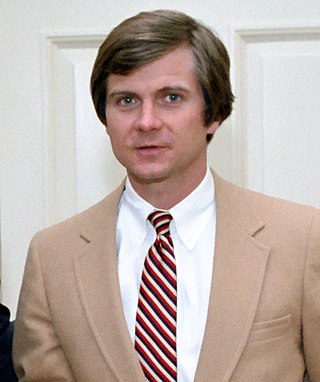
Harvey LeRoy "Lee" Atwater was an American political consultant and strategist for the Republican Party. He was an adviser to Republican U.S. presidents Ronald Reagan and George H. W. Bush and chairman of the Republican National Committee. Atwater aroused controversy through his aggressive campaign tactics, especially the Southern strategy.

Joan Didion was an American writer and journalist. She is considered one of the pioneers of New Journalism along with Gay Talese, Hunter S. Thompson, and Tom Wolfe.
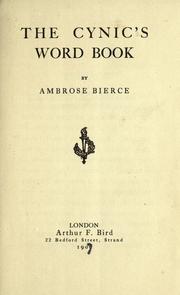
The Devil's Dictionary is a satirical dictionary written by American journalist Ambrose Bierce, consisting of common words followed by humorous and satirical definitions. The lexicon was written over three decades as a series of installments for magazines and newspapers. Bierce's witty definitions were imitated and plagiarized for years before he gathered them into books, first as The Cynic's Word Book in 1906 and then in a more complete version as The Devil's Dictionary in 1911.
Steve Brodner is a satirical illustrator and caricaturist working for publications in the US since the 1970s. He is accepted in the fields of journalism and the graphic arts as a master of the editorial idiom. Currently a regular contributor to GQ, The Nation, Newsweek, The Washington Post, and The Los Angeles Times, Brodner's art journalism has appeared in major magazines and newspapers in the United States, such as Rolling Stone, The New York Times, The New Yorker, Esquire, Time, Playboy, Mother Jones, Harper's, and The Atlantic. His work, first widely seen exposing and attacking Reagan Era scandals, is credited with helping spearhead the 1980s revival of pointed and entertaining graphic commentary in the US. He is currently working on a book about the presidents of the United States.

Ian Buruma is a Dutch writer and editor who lives and works in the United States. In 2017, he became editor of The New York Review of Books, but left the position in September 2018.
Arthur Edmund Morris was an American-South African writer, known for his biographies of U.S. Presidents. His 1979 book The Rise of Theodore Roosevelt won the Pulitzer Prize for Biography or Autobiography and was the first of a trilogy of books on Roosevelt. However, Morris sparked controversy with his 1999 book, Dutch: A Memoir of Ronald Reagan, due to its extensive use of fictional elements.

Slouching Towards Bethlehem is a 1968 collection of essays by Joan Didion that mainly describes her experiences in California during the 1960s. It takes its title from the poem "The Second Coming" by W. B. Yeats. The contents of this book are reprinted in Didion's We Tell Ourselves Stories in Order to Live: Collected Nonfiction (2006).

The Fire Next Time is a 1963 non-fiction book by James Baldwin, containing two essays: "My Dungeon Shook: Letter to my Nephew on the One Hundredth Anniversary of the Emancipation" and "Down at the Cross: Letter from a Region of My Mind".

Eric S. Perlstein is an American historian and journalist who has garnered recognition for his chronicles of the post-1960s American conservative movement. The author of five bestselling books, Perlstein received the 2001 Los Angeles Times Book Prize for his first book, Before the Storm: Barry Goldwater and the Unmaking of the American Consensus. Politico has dubbed him "a chronicler extraordinaire of modern conservatism."
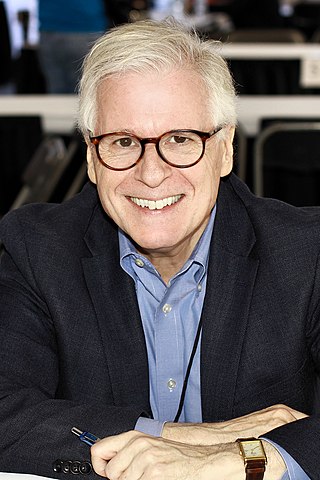
Thomas Mallon is an American novelist, essayist, and critic. His novels are renowned for their attention to historical detail and context and for the author's crisp wit and interest in the "bystanders" to larger historical events. He is the author of ten books of fiction, including Henry and Clara, Two Moons, Dewey Defeats Truman, Aurora 7, Bandbox, Fellow Travelers, Watergate, Finale, Landfall, and most recently Up With the Sun. He has also published nonfiction on plagiarism, diaries, letters and the Kennedy assassination, as well as two volumes of essays.
Wanda Coleman was an American poet. She was known as "the L.A. Blueswoman" and "the unofficial poet laureate of Los Angeles".
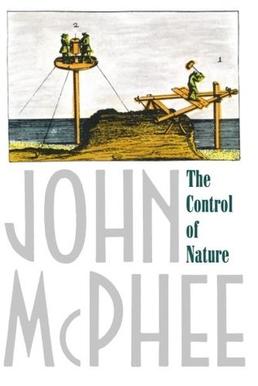
The Control of Nature is a 1989 nonfiction book by John McPhee that chronicles three attempts to control natural processes that had varying success. The book combines three long essays previously published in The New Yorker: "Atchafalaya", "Cooling the Lava", and "Los Angeles Against the Mountains". These respectively describe the Old River Control Structure regulating inflow to the Atchafalaya River; the Eldfell volcanic eruption of 1973; and debris flow from the San Gabriel Mountains.

Ben Greenman is an American novelist, magazine journalist, and publishing executive who has written more than twenty fiction and non-fiction books, including collaborations with pop-music artists like Questlove, George Clinton, Brian Wilson, Gene Simmons, and others. His books have been translated into many other languages, including Italian, Japanese, Dutch, Spanish, and more. From 2000 to 2014, he was an editor at The New Yorker. He now serves as executive editor of Auwa Books, an imprint founded by Questlove in collaboration with Farrar, Straus and Giroux.

Gonzo Papers, Vol. 3: Songs of the Doomed: More Notes on the Death of the American Dream is a book by the American writer and journalist Hunter S. Thompson, originally published in 1990. This third installment of The Gonzo Papers is a chronologically arranged selection of stories, letters, journals and reporting, allowing readers to see how Thompson's brand of "new journalism," also termed Gonzo journalism, has evolved over the years. It is a collection of Dr. Thompson's essays and articles. This collection is mostly made up of pieces from the Reagan Era, but there are also some older stories, including excerpts from his unfinished first novel, "Prince Jellyfish", which is still unpublished, and The Rum Diary, which was not published on its own until 1998.
Esther McCoy was an American author and architectural historian who was instrumental in bringing the modern architecture of California to the attention of the world.
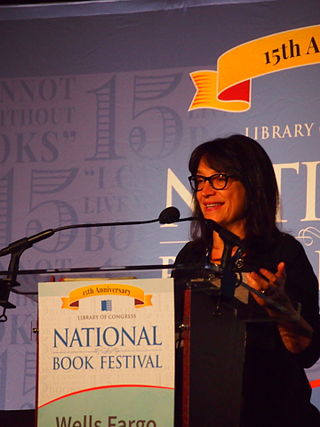
Amy Wilentz is an American journalist and writer. She is a professor of English at the University of California, Irvine, where she teaches Literary Journalism. Wilentz received a 2013 National Book Critics Circle Award for her memoir, Farewell, Fred Voodoo: A Letter from Haiti, as well as a 2020 Guggenheim Fellowship in General Nonfiction. Wilentz is The New Yorker's former Jerusalem correspondent and is a contributing editor at The Nation.

"Raising Kane" is a 1971 book-length essay by American film critic Pauline Kael, in which she revived controversy over the authorship of the screenplay for the 1941 film Citizen Kane. Kael celebrated screenwriter Herman J. Mankiewicz, first-credited co-author of the screenplay, and questioned the contributions of Orson Welles, who co-wrote, produced and directed the film, and performed the lead role. The 50,000-word essay was written for The Citizen Kane Book (1971), as an extended introduction to the shooting script by Mankiewicz and Welles. It first appeared in February 1971 in two consecutive issues of The New Yorker magazine. In the ensuing controversy, Welles was defended by colleagues, critics, biographers and scholars, but his reputation was damaged by its charges. The essay and Kael's assertions were later questioned after Welles's contributions to the screenplay were documented.















